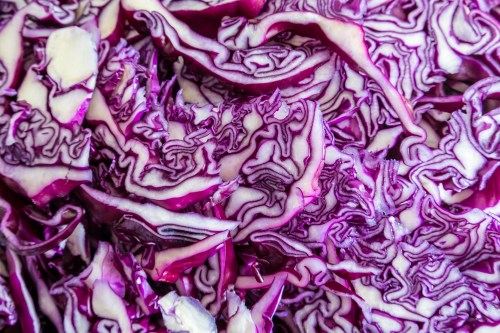Breathing and digestion are both involuntary processes in your body. However, you can exert a little control over your breath. And, what’s more, deep purposeful breathing can improve your digestion. It seems like taking deep breaths yields so many benefits that it’s hard to keep track: heart health, stress relief, improved sleep are just a few; however, improved digestion is simply another aspect of breathing deeply.
Experts in This Article
Medical Doctor and Life Coach
registered dietitian nutritionist specializing in holistic nutrition and gut health
There are two basic types of breathing: chest breathing and diaphragmatic breathing. Chest breathing utilizes the upper muscles of your chest to pull oxygen into your lungs, the Mayo Clinic states. Diaphragmatic breathing is what clinicians consider “deep-breathing” because it utilizes the body’s dominant breathing muscle: the diaphragm (a big, dome-like muscle that contracts continually, helping you to breathe). There’s nothing wrong with chest breathing, but when it comes to mealtime, a few deep inhales and exhales can encourage slower, more mindful eating and reduce symptoms associated with GI disorders like indigestion and constipation.
How deep breathing affects the nervous system
When you are distracted, running, in a hurry, or otherwise stressed, your body moves into fight or flight mode, which means your sympathetic nervous system is active. When this happens, your body releases stress hormones like adrenaline and cortisol. Adrenaline boosts your energy, elevates your heart rate, and raises your blood pressure. Cortisol controls (what it considers to be) non-essential activities within the body like digestion, the Mayo Clinic says. This means blood moves away from vital digestive organs, says Jenna Volpe, RDN, LD, CLT, specializing in digestive health. Instead, blood moves to the arms, legs, and lungs, which is helpful if you need to run from a bear (but not if you’re stressed at work and on your lunch break). In fact, Volpe shares that an active sympathetic nervous system often results in indigestion, nausea, heartburn, reduced nutrient absorption, and fatigue.
“Deep breathing is a quick and effective way to switch our nervous system out of the sympathetic fight or flight stress response (survival mode) into the parasympathetic rest and digest relaxation mode,” says Volpe. “Our nervous system can only be in one of those states at a time.”
Deep breathing affects how you eat, too
While eating naturally nudges your ‘parasympathetic nervous system (hence: rest and digest), deep breathing before a meal can help move things along. For instance, deep breaths can stimulate the vagus nerve, which is involved in regulating the nervous system and gut. The parasympathetic nervous system also promotes salivation and restores normal blood flow to the organs that aid digestion.
Even though eating has the ability to slow your fight or flight response, a few deep breaths before eating gives you the chance to be more mindful throughout the meal, according to Cindy Tsai, MD. This is nothing to be ashamed of, but deep-breathing is a great strategy for someone who wants to eat slower, chew more thoroughly, or just get more enjoyment out of their meal.
Not only is deep-breathing good for switching off the body’s fight or flight response, but it also allows you to be more mindful while you eat. “When we do this before we eat, we are more likely to chew more slowly and have more mindful awareness while eating,” says Coral Dabarera Edelson, MS, RD. Chewing slowly can make a huge difference for people with digestive issues, and it is one of the first things to work on when dealing with stomach tightness, gassiness, and acid reflux, Edleson says. As you slow down your mind and body before you eat, you can become more aware of things like chewing, swallowing, and the speed at which you eat.
How (and when) to try deep breathing
No one wants breathing to become a mealtime stressor, and both experts suggest you give yourself grace as you try to develop a ritual. Practice makes perfect, but you don’t have to meditate for an entire hour before a meal to experience the benefits.
Keeping things simple at first is the best way to reap the rewards of deep breathing before you eat, according to Dr. Tsai. She recommends that you sit quietly and feel your feet on the ground. “Take a slow inhale through the nose and count to four, as you feel your abdomen expand,” she says, adding that you can put your belly on your hands to feel it fill up when you inhale.
“Hold your breath for 2 seconds if you can,” Dr. Tsai explains. “Exhale slowly through your mouth (count to six) as your abdomen deflates. Repeat three to five times.”
Remember that this shouldn’t replace any clinical treatment or medications but can instead help your digestion as an added practice. Volpe also adds that you should avoid deep breathing while you eat because it can cause bloating or choking. Before and after eating are ideal.
These bodily processes happen on their own if you’re not paying attention, so there’s no reason to feel bad if you haven’t been deep-breathing before a meal. This is an opportunity to improve your digestion and calm your system before you eat.
Oh hi! You look like someone who loves free workouts, discounts for cutting-edge wellness brands, and exclusive Well+Good content. Sign up for Well+, our online community of wellness insiders, and unlock your rewards instantly.
Sign Up for Our Daily Newsletter
Get all the latest in wellness, trends, food, fitness, beauty, and more delivered right to your inbox.
Got it, you've been added to our email list.











